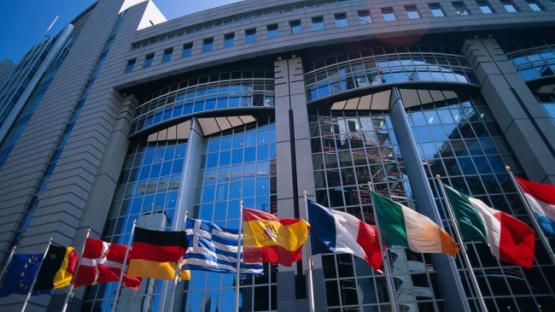NGO Coalition calls on EU to update Dual Use Regulation to protect human rights

The Coalition Against Unlawful Surveillance Exports (CAUSE) has today released a new policy paper calling on the EU to take the opportunity to update its Dual Use Regulation to ensure that surveillance technologies are not exported from Europe and used for human rights violations.
The proposals have been developed by the international secretariat of CAUSE, a coalition of NGOs consisting of Access, Amnesty International, Digitale Gesellschaft, Human Rights Watch, the International Federation for Human Rights (FIDH), the Open Technology Institute at the New America Foundation, Privacy International, and Reporters Without Borders.
They aim to ensure that the Dual Use Regulation, which is currently under review and legally binding upon all EU member states, effectively regulates the trade in surveillance technologies, brings transparency and accountability to the industry, and protects legitimate security research.
The key asks are that:
- All relevant surveillance technology is subject to licensing
- Human rights implications are appropriately incorporated within assessment criteria, consistent with obligations under the Charter of Fundamental Rights of the European Union
- Disparate national policies facilitating licensing avoidance and potential loopholes in enforcement mechanisms are addressed, and greater transparency of exports is promoted
- Legitimate security research and the development of legitimate security tools are not subject to controls and are subject to explicit exemptions**
- Controls of encryption and encryption products be eradicated.
** Concerns have been raised that the term ‘legitimate security research’ seeks to differentiate between legitimate and illegitimate research.The term legitimate in this context is used to simply emphasise the legitimacy of all security research, and is not supposed to make a distinction.
Background
Since 2011, the EU has been conducting a review of the Dual Use Regulation mandated by the Regulation itself. In 2011, the European Commission published a Green Paper and call for evidence, followed by a report on the public consultation being adopted in January 2013. Regarding surveillance technology, the Commission Communication published in 2014 recognised the risk posed by “the emergence of specific 'cybertools' for mass surveillance, monitoring, tracking and interception”, while importantly also recognising “the interlinkages between human rights, peace and security”.
Any changes to the Regulation will need to be agreed upon by all member states, as well as by the European Parliament. The Parliamentary Subcommittee on Human Rights and the Committee on International Trade convened a hearing in January 2015. In April 2015, the Foreign Affairs Committee of the European Parliament adopted a report by MEP Marietje Schaake on Human rights and technologies: the impact of digital surveillance and intrusion systems on human rights in third countries. The report will be voted on by the plenary in summer 2015.
The Commission has also initiated an impact assessment aimed at informing the policy-making process by quantifying and providing objective data on the industry and the potential cost of any regulatory changes. Ecorys, a European research and consultancy company, in partnership with the Stockholm International Peace Research Institute (SIPRI), is carrying out a data collection project, including a component specifically focused on surveillance technologies, to inform the impact assessment. The impact assessment is expected to be completed in the second half of 2015.
Simultaneously, a Subcommittee on ICTs, the Surveillance Technology Working Group (STEG) has been established within the DG Trade Dual Use Working Group. Consisting of experts from the national licensing authorities in Germany, the Netherlands, Finland, Sweden, Denmark, the UK, France and Poland, the working group is aimed at identifying surveillance technology that poses a risk to human rights and how it can be effectively controlled.
Call for action
The imposition of export licensing requirements upon strategically chosen, well-defined, surveillance technologies is essential as part of a comprehensive approach to ensuring that such items are not used to for abuses of human rights. While export restrictions are not a silver bullet designed to comprehensively protect human rights, they are a necessary and major component of any successful mitigation strategy. Importantly, even when they are not invoked to restrict a transfer of surveillance technology, export controls also act as an essential accountability and transparency mechanism.
The mere fact that EU policy makers and member state authorities are now seriously examining the commercial surveillance industry is to be welcomed by itself. It is now essential however that they also ensure that European export control policy is made consistent with their own commitments to human rights standards. While this remains a complicated area of policy making, today's publication offers a comprehensive roadmap.



